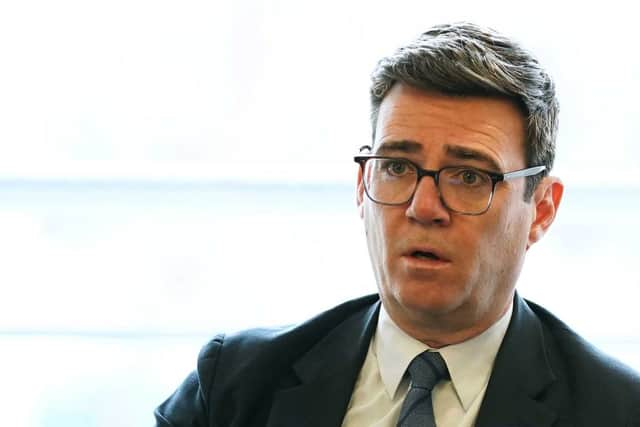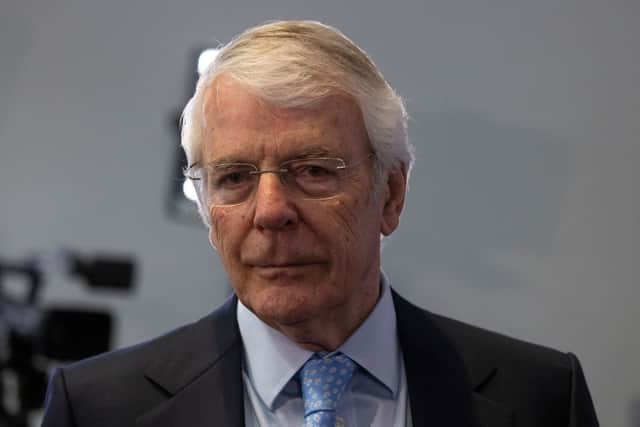Infected blood inquiry: what did Andy Burnham say about scandal that saw people contract HIV and Hepatitis C?
and live on Freeview channel 276
Up to 30,000 people contracted HIV and hepatitis C in the 1970s and 80s after being given blood treatments or transfusions on the NHS.
But how did the contaminated blood scandal happen and what has Andy Burnham said about it?


Here’s what you need to know.
What was the contaminated blood scandal?
Advertisement
Hide AdAdvertisement
Hide AdIn the 1970s and 1980s, up to 30,000 people in the UK contracted HIV and hepatitis C after being given blood treatments or transfusions on the NHS, with thousands having since died.
Factor VIII was a therapy designed to help blood clots and was imported from the United States where it was distilled from the pooled blood of thousands of individuals, including prisoners.
People with haemophilia, including many young children, and those who were given blood transfusions after surgery, were among those infected with contaminated blood, with the scandal being called the biggest treatment disaster in NHS history.
What has Andy Burnham said?
Mayor of Manchester Andy Burnham gave evidence to the Infected Blood Inquiry on Friday (15 July).
Advertisement
Hide AdAdvertisement
Hide AdThe inquiry was launched after years of campaigning by victims, who claim that the risks were never explained and that the scandal was covered up.
Questions have also been asked during the inquiry about whether the Government knew about the risks of the blood treatments, and whether patients were given sufficient warning.
Mr Burnham described during the morning evidence session how health officials used false information to avoid responding correctly to the contaminated blood scandal.
During his time as Health Secretary (2009-10), the department of health said “there is no evidence of any negligence or wrongdoing on the part of the department during the period in question”.
Advertisement
Hide AdAdvertisement
Hide AdResponding to this in the inquiry, Mr Burnham said: “That is a false statement. So that’s where it starts, with a false statement...”.
He added that the department “got things fundamentally wrong; you know, inhumanely wrong. No mention of the suffering of thousands and thousands and thousands of people who might have a reason to be given answers as to why they are infected and why their lives are ruined and why their partners had to give up work. Where’s the mention of any that?”.
Mr Burnham also said that the UK government has “comprehensively failed” the victims of infected blood over the past five decades.
What did Sir John Major say?


In June, former Prime Minister Sir John Major also gave evidence under oath to the public inquiry into the disaster.
Advertisement
Hide AdAdvertisement
Hide AdHe appeared before the inquiry to answer questions about the Government’s actions, including decisions on financial assistance for those affected.
Although Sir John did not hold a position in government in the 1970s or early 1980s - when most of those infected were treated with contaminated blood products - he did hold senior positions, including as Chancellor and PM, when financial support for the families affected by the scandal were discussed in the late 80s and early 90s.
Sir John’s comments during the inquiry proved controversial, as he recently described the contaminated blood scandal as "incredibly bad luck".
He then later apologised for his choice of language.
Sir John said: "I obviously caused offence inadvertently this morning when I referred to the fact that it was awful that people had been fed infected blood and I referred to it as sheer bad luck.
Advertisement
Hide AdAdvertisement
Hide Ad"I can only say to people it wasn’t intended to be offensive. I was seeking to express the fact that I was concerned about what happened.
"It was intended simply to say that it was a random matter and I perhaps expressed it injudiciously."
The public inquiry is chaired by former judge Sir Brian Langstaff and started taking evidence in April 2019, with hearings in Belfast, Leeds, Cardiff, Edinburgh and London.
The inquiry is expected to publish its final report in mid-2023.
Comment Guidelines
National World encourages reader discussion on our stories. User feedback, insights and back-and-forth exchanges add a rich layer of context to reporting. Please review our Community Guidelines before commenting.
